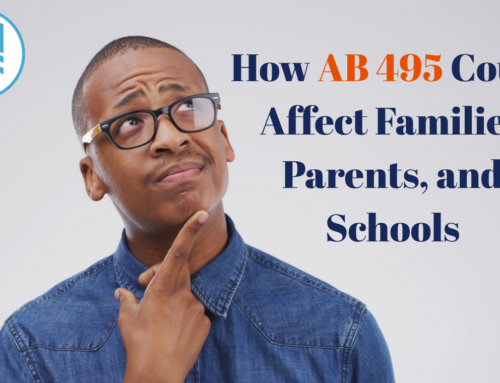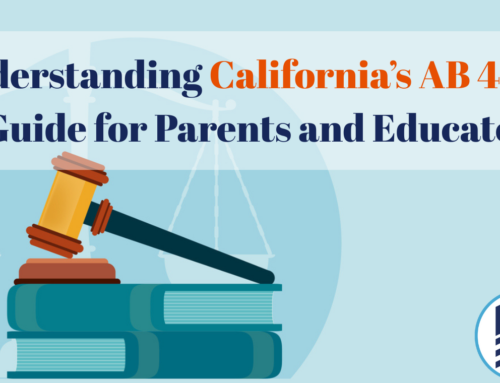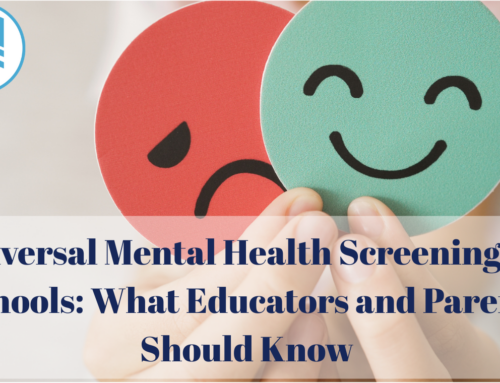
By the time education laws take effect in local schools, it can be easy to forget where they came from.
When parents heard that Southampton High School was on lockdown and a weapon and contraband search underway, their minds probably didn’t jump to Virginia code § 22.1-279.3:1.
That’s a section of code that deals with partnerships between schools and law enforcement. Particularly, it describes what incidents the principal “shall immediately report to the local law-enforcement agency.”
In the same way, when Southampton High School parents hear what curriculum their child is using, they probably don’t think, “This is regulated under Virginia Code § 22.1-253.13:1!” That section of code empowers the Board of Education to “establish educational objectives known as Standards of Learning.”
While most of us know that laws do affect education, we don’t have the particulars memorized. Nor do we often think about which legislative body has the most influence over particular areas of the educational system.
Knowing those details is not a prerequisite for participating in the educational system as an involved parent.
It is, however, a prerequisite for influencing education laws in your state.
How Education Laws Work
There are big differences between federal, state, and local education laws. Each has a different focus and purview.
Federal
Federal law is usually described as having the least influence on educational issues. But that’s not necessarily true. While states are primarily responsible for maintaining and operating public schools, federal law can have a broad impact.
During a 2012 panel on national education policy hosted by Columbia University’s Teacher College, participants agreed that, “Most major changes to American schools have resulted from federal law, jurisprudence or policy.” They cited examples such as the federal court-ordered desegregation of Boston public schools in the 1960’s and the integration of disabled students with non-disabled students under the Individuals with Disabilities Education Act.
Christopher T. Cross, former U.S. Under Secretary of Education and current chairman of an education-policy consulting firm says, “The reality is that almost everything that goes on is, in fact, guided by what happened in federal policy at some point, even though people in the classroom may not recognize it.”
That doesn’t mean federal education policy is the most influential policy out there. Federal education policy often deals with safeguarding teachers’ and students’ constitutional rights or equal access to education. While these don’t constitute the bulk of educational policy decisions, they are major policy decisions because they direct what happens at every other level.
State
At the state level, you’ll find a more nuanced policy.
This is because, according to FindLaw.com, “The states are the entities primarily responsible for the maintenance and operation of public schools. The states are also heavily involved in the establishment, selection, and regulation of curriculum, teaching methods, and instructional materials in their schools. Consequently, each state has different standards and policies which may impact the quality of education offered.”
Local
Often, the job of local governing bodies or elected officials is overseeing the implementation of federal or state laws in local public schools. Sometimes, localities do write and pass their own ordinances or regulations for local public schools. For example, some ordinances regulate the formation, appointment, and duties of a Board of School Trustees, while others mandate that local schools present annual budget reports to the city council.
Each level of government plays a role in forming education laws.
What You Can Do
The U.S. legal system is built to change slowly.
Our founding fathers didn’t want any one person to have the authority to remake the legal system on a whim. This intentional structure safeguards our essential rights and allows us to live freely without the threat of dictatorship and anarchy.
Unfortunately, the slow-turning wheels of legislation also mean that it can take a lot of legwork when you are serious about changing or influencing laws. If you’re up for the challenge, here are some ways you can help:
1. Vote in local, state, and federal elections for candidates that support your educational values. Knowing whether a candidate aligns with your values may take some investigating. If you can’t find the information online, you may want to attend a town hall where you can ask the candidate questions about their policy platform.
The issue of transgender athlete policies is an example of how your representatives impact education laws. While state legislators may pass legislation restricting (or increasing) transgender athlete participation, judges can grant preliminary injunctions that temporarily prohibit the state from enacting such laws. Or, as President Joe Biden did, the signing of an executive order can prevent the enforcement of some state laws. Voting for representatives who will vote your values and appoint equitable judges is critical.
2. Donate or volunteer with a lobbying organization or political action committee (PAC)
Lobbying organizations include professional organizations such as teachers’ unions, school board associations, and education reform groups. They employ lobbyists who spend their time advocating for laws or policies favorable to the group’s position.
Political action committees raise funds for campaign donations, ballot initiatives, and legislation. They are often a component of a larger organization. The National Education Association has a PAC that “works to elect pro-public education candidates up and down the ballot who support the issues most important to our members and our students.” Similar PACs may offer opportunities for you to contribute time or money to educational issues important to you.
3. Track policy issues and write or call representatives
The National Conference of State Legislatures (NCSL) and the Education Commission of the States are both excellent resources for tracking education policy. The Education Writers Association says that NCSL may even do a little digging for you if they haven’t already compiled research on a subject.
Take some time to learn about educational issues coming before your state legislature. If you understand the content of bills that they’ll be voting on, you can reach out to your representatives and express your preference for their vote. Writing a letter is a great way to let your representative know that their constituents care about upcoming policy issues. And if you don’t have time to write, you can call. Many PACs and lobbying organizations issue scripts on particular topics to help guide your calls and letters.
4. Start a Petition
When Lynchburg, Virginia residents realized that their school board members were not directly accountable to them by law, they started a petition. They wanted the opportunity to vote for school board candidates rather than have them appointed by the city council.
Whether it’s the freedom to vote for your own school board members or something else you want to see change, a petition may be the way to go. Referendum or initiative petitions give people a way to get proposals to repeal or institute laws on their local ballots.
5. Run for a local government office
Depending on your locality, running for council member or commissioner may give you legislative and policy-making responsibilities in your town. These policies often deal with how local schools are operated and administered. This could look like anything from establishing a School Board of Trustees to regulating how and when the school presents budget reports.
Whether you end up becoming a policymaker yourself or funding and voting for other policymakers, every effort counts.
There’s a huge array of educational opinions in the legislative system, and ideas can’t become laws unless someone votes for them. Whether that’s a vote for a representative who will go on to vote in a legislative chamber or the “vote” of a signature on a petition, the message is clear: use yours!




